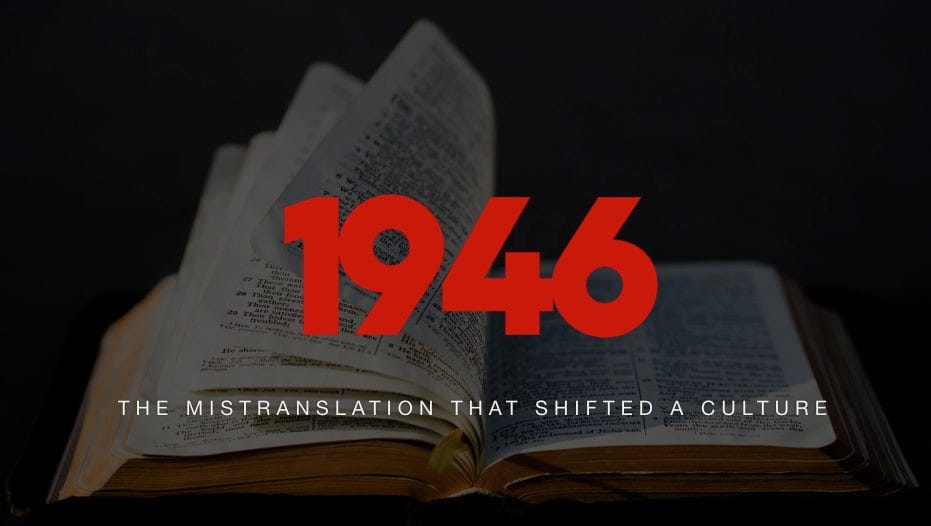The film "1946" has ruffled more than a few feathers with its bold assertion that the term 'homosexuality' was erroneously introduced into the Bible only in the mid-20th century. This claim, while sensational, crumbles under the weight of historical, biblical, and exegetical scrutiny. Let's dissect and dismantle this absurd argument piece by piece.
First, the film's premise is not just flawed—it's a giant cringeworthy fallacy in historical analysis, leading ignorant viewers down a perilous path of misinformation. Such a bloodcurdling distortion of historical facts is not just a scholarly oversight but a trap that threatens to undermine centuries of clear, biblical theology.
Firstly, let's address the historical claim. The film posits that the Bible, for nearly two millennia, did not explicitly condemn homosexuality because the specific term 'homosexuality' was not used. This argument is a classic example of anachronism—judging historical eras by contemporary standards. The concept of homosexuality, as understood today, might not have a direct linguistic counterpart in ancient texts, but this in no way implies acceptance or endorsement of homosexual behavior. To suggest that the absence of a modern term equates to an endorsement of the practice is not only a leap in logic, it’s a dangerous oversimplification that ignores the broader historical and cultural context in which these ancient texts were written.
Delving into the original biblical languages, we encounter the Greek word 'arsenokoitai,' used in 1 Corinthians 6:9-10 and 1 Timothy 1:10. This term, often translated as "homosexuals" in modern versions, has been a point of contention. However, a thorough examination of the historical and linguistic context reveals that 'arsenokoitai' refers to men engaging in sexual activity with other men. The term is derived from two Greek words: 'arsen' meaning 'male' and 'koitai' meaning 'bed,' with a sexual connotation. The apostle Paul's use of 'arsenokoitai' is a clear reference to Leviticus 18:22, which categorically condemns male same-sex relations.
To argue that 'arsenokoitai' does not refer to homosexuality is to engage in linguistic gymnastics, twisting the text to fit a modern agenda. The early church fathers, well-versed in Greek, understood this term to condemn homosexual acts. The Bible’s stance on sexual morality is not hinged on a single word or phrase. The entire narrative of Scripture, from Genesis to Revelation, presents a consistent and unambiguous view of sexual relations as being confined within the bounds of heterosexual marriage. This isn't just a side note in the biblical text—it's a central theme, a picture of the gospel, woven throughout the entirety of Scripture.
The film "1946" also ignores the comprehensive biblical witness on the matter. This is not just an oversight, it's a purposeful invasion into the territory of biblical truth with an agenda that is as obscene as it is heretical. The clear depiction in Genesis of the union between Adam and Eve lays the foundation for this understanding, presenting the marital bond between a man and a woman as the foundation of human relationships. This is not a mere cultural norm that can be slapped aside by modern reinterpretations. Marriage is a divine ordinance embedded in the very fabric of creation.





